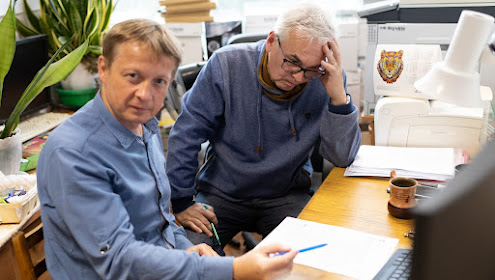 |
| Credit: Queen's University Belfast |
The self-sterilizing film is the first of its kind – it is low cost to produce, can be readily scaled and could be used for disposable aprons, tablecloths, and curtains in hospitals.
It is coated with a thin layer of particles that absorb UV light and produce reactive oxygen species – ROS. These kill viruses, including SARS2.
The technology used to create the film also ensures it is degradable - unlike the current disposable plastic films it would replace, which is much more environmentally friendly.
The breakthrough could lead to a significant reduction in the transmission of viruses in healthcare environments but also in other settings that use plastic films – for example, food production factories.
The Queen’s researchers tested the film for anti-viral activity using four different viruses – two strains of influenza A virus, a highly-stable picornavirus called EMCV and SARS2 – exposing it to either UVA radiation or with light from a cool white light fluorescent lamp.
They found that the film is effective at killing all of the viruses - even in a room lit with just white fluorescent tubes.
















.jpg)